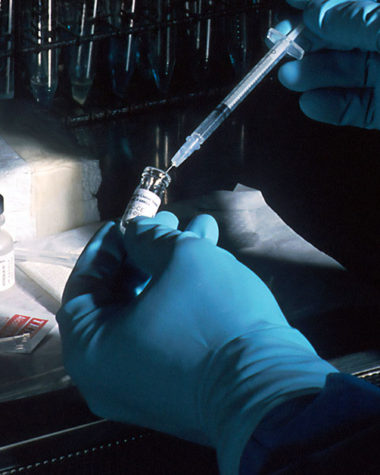Fresenius Medical Care AG (NYSE:FMS) is the world’s leading provider of dialysis products and services for individuals with chronic kidney failure, a condition affecting millions of patients worldwide who require regular life-sustaining dialysis treatment. Founded in 1996 through the merger of Fresenius AG’s dialysis business and National Medical Care, the company is headquartered in Bad Homburg, Germany, and operates in more than 150 countries with a workforce of over 120,000 employees. Over the past three decades, Fresenius Medical Care has built the largest vertically integrated dialysis network in the world—encompassing everything from the design and manufacture of dialysis machines and filters to the operation of outpatient treatment centers. Its dual business model allows it to provide comprehensive renal care under one umbrella, ensuring quality control, consistent service delivery, and innovation throughout the entire patient care process.
The company’s operations are organized into two global business segments: Care Delivery and Care Enablement. Care Delivery manages Fresenius Medical Care’s extensive network of more than 4,000 dialysis clinics across the globe, treating approximately 340,000 patients each year. This segment provides in-center hemodialysis, home dialysis, and other renal replacement therapies tailored to meet diverse patient needs. Care Enablement, on the other hand, focuses on the development, production, and distribution of dialysis equipment and related disposables—including dialysis machines, dialyzers, tubing systems, and water treatment solutions. By combining product innovation with direct patient care, Fresenius Medical Care maintains a unique market position that bridges medical technology and healthcare service delivery, ensuring reliability and continuity for both patients and healthcare providers.
Innovation has always been central to Fresenius Medical Care’s growth strategy. The company has consistently led the market in developing next-generation dialysis systems designed to improve patient outcomes and treatment efficiency. Its flagship products, such as the 5008 CorDiax and the 5008X CAREsystem, exemplify this commitment by integrating smart sensors, data analytics, and user-friendly interfaces that optimize fluid management and reduce treatment time. These advancements have set new standards in the dialysis industry and continue to support the company’s goal of improving quality of life for patients while helping healthcare systems operate more efficiently. In addition to product innovation, Fresenius Medical Care is expanding its focus on home dialysis and digital health platforms, empowering patients to manage their treatments more independently while reducing the burden on clinical infrastructure.
Beyond its clinical and technological leadership, Fresenius Medical Care’s business model emphasizes sustainability and long-term patient care. The company collaborates with healthcare systems, insurers, and governments to make life-saving therapies more accessible worldwide, particularly in developing regions where dialysis infrastructure remains limited. Its integrated approach allows it to adapt to varying healthcare regulations and reimbursement systems while maintaining consistent standards of safety, ethics, and quality. Moreover, Fresenius Medical Care invests heavily in training programs for healthcare professionals, promoting knowledge transfer and clinical excellence across its global operations.
Under its ongoing FME Reignite strategy, the company is realigning its portfolio to strengthen operational efficiency, enhance profitability, and accelerate innovation in key therapeutic areas. This transformation includes leadership restructuring, targeted investments in high-margin segments, and divestitures of non-core businesses. Despite global economic challenges and healthcare cost pressures, Fresenius Medical Care continues to leverage its scale, data-driven insights, and clinical expertise to adapt to the evolving landscape of renal care. Its strong market share, technological edge, and global presence make it not only a cornerstone of the Fresenius Group but also a vital contributor to the future of chronic disease management.
Today, Fresenius Medical Care stands as a symbol of medical innovation and patient-centered care, serving as both a healthcare provider and a technology pioneer. With a mission to create a future worth living for kidney patients worldwide, the company continues to lead the field in dialysis treatment, product development, and holistic renal care—transforming lives through science, technology, and compassion.
Leadership Transition Raises Execution Uncertainty
Fresenius Medical Care AG (NYSE:FMS), the world’s leading provider of dialysis products and services for individuals with renal disease, is entering a delicate leadership transition at a time when the company faces mounting structural and market challenges. On October 1, 2025, the Supervisory Board announced that Joseph E. (Joe) Turk will assume the role of Chief Executive Officer of the global operating segment Care Enablement, effective January 1, 2026. This move follows the planned retirement of Dr. Katarzyna Mazur-Hofsäß, who has led the segment since its formation in 2022.
While the transition appears well-orchestrated, leadership changes of this magnitude often bring execution risks—especially in a global healthcare organization already balancing margin pressures, regulatory scrutiny, and operational complexity. Dr. Mazur-Hofsäß played a pivotal role in reshaping Care Enablement and driving the launch of key products like the 5008X CAREsystem, an innovative dialysis platform poised for rollout in the U.S. market. With her departure, there is uncertainty over whether the new leadership can maintain strategic continuity and meet the company’s ambitious performance and innovation goals. Even though CEO Helen Giza has emphasized a smooth handover under the FME Reignite strategy, investors often react cautiously to such shifts, as transitions can slow momentum during critical business phases.

CHECK THIS OUT: Tiziana (TLSA) Surges 143% in 2025 and Immuneering (IMRX) Reports 86% 9-Month Survival in Pancreatic Cancer.
Structural Headwinds Cloud the Growth Narrative
Despite its strong global footprint and market dominance, Fresenius Medical Care continues to battle fundamental headwinds that threaten its long-term growth trajectory. The company’s reliance on the global dialysis market—a business model that depends on recurring patient treatments—faces new risks from emerging medical innovations. The growing adoption of GLP-1 weight-loss and diabetes drugs (like Ozempic and Wegovy) may reduce the incidence and progression of chronic kidney disease, directly cutting into the company’s future dialysis patient base.
Fresenius Medical Care’s business stability, historically rooted in predictable demand from end-stage renal disease patients, is now vulnerable to medical progress. As more patients manage their kidney health through preventive drugs and lifestyle interventions, the dialysis market could plateau or even shrink in mature regions such as the U.S. and Western Europe. If the company cannot pivot toward higher-margin home therapies or diversified renal care solutions, revenue growth may stall and margins could continue to compress.
Reimbursement and Regulatory Pressures Intensify
The healthcare reimbursement landscape remains one of the company’s largest sources of volatility. Fresenius Medical Care operates in a heavily regulated environment, where national health systems and insurers exert tight control over dialysis pricing. Any cuts in reimbursement rates—particularly in key markets such as the U.S., Germany, and Japan—would directly erode profitability. The dialysis industry’s high fixed-cost structure means that even minor reductions in per-treatment reimbursement can have outsized impacts on earnings.
In addition, Fresenius Medical Care continues to face regulatory and compliance risks, including product recalls and safety concerns related to its dialysis machines and consumables. The company has previously issued Class I FDA recalls, the most serious category, over leakage and contamination risks associated with tubing and catheters. These incidents raise red flags over quality control and increase exposure to product liability claims. Legal disputes, compliance fines, and reputational damage could further constrain the company’s ability to sustain its brand trust among healthcare providers and patients.
Margins Under Pressure Amid Cost Inflation
The company’s Care Enablement segment, which supplies dialysis machines and related products, remains under pressure from inflation in raw materials, logistics, and energy costs. The rollout of new systems like the 5008X CAREsystem also requires substantial investment in manufacturing, regulatory compliance, and distribution. While management continues to emphasize margin improvement initiatives, cost inflation has proven difficult to offset in a capital-intensive industry that operates on long-term service contracts.
Even as Fresenius pursues digital transformation and supply chain efficiency through its FME Reignite strategy, results have been mixed. The company’s latest quarterly reports suggest that margin gains are primarily being driven by cost-cutting and divestitures rather than strong organic growth. This dependence on internal efficiencies, rather than expanding patient volume or pricing power, leaves the company vulnerable to external shocks.
Portfolio Optimization Signals Defensive Strategy
Another red flag for bearish investors is Fresenius Medical Care’s ongoing portfolio optimization plan. The company has been selling or winding down non-core and low-margin businesses to streamline operations, but this process also reduces revenue diversification. Management has already warned that these divestitures will negatively impact revenue growth by about one percentage point in fiscal 2025. While the intent is to strengthen the core dialysis and equipment business, the result may be a leaner but less flexible company in an evolving healthcare landscape.
Furthermore, Fresenius’s reliance on mature markets means it cannot easily rely on volume growth to offset these losses. Emerging markets may offer new patient opportunities, but they often come with weaker reimbursement structures and higher operational costs.
Execution Risks Under New Leadership
The appointment of Joe Turk adds another layer of uncertainty to Fresenius Medical Care’s transformation agenda. While Turk is a respected executive with a strong background from NxStage Medical, Boston Scientific, and McKinsey & Company, he now faces the challenge of executing in an environment marked by thin margins, complex regulatory frameworks, and intensifying competition. His focus on expanding home and critical care therapies could prove strategically sound, but implementation risks remain high.
Home dialysis and portable care systems require major logistical support, training, and patient engagement—all areas where Fresenius is still developing scalable solutions. If execution falters under the new leadership team, the company could lose ground to competitors such as DaVita or Baxter, both of which are also investing heavily in home-care innovations.
Debt, Cash Flow, and CapEx Strain
Fresenius Medical Care’s capital structure adds financial pressure to its transformation efforts. The company is targeting annual capital expenditures of €800 million to €1 billion, with significant portions allocated to innovation, manufacturing upgrades, and sustainability initiatives. While these investments are essential for long-term competitiveness, they also constrain free cash flow and reduce financial flexibility, particularly in an environment of elevated interest rates.
Although the company has maintained its BBB-/A-3 credit rating, its net leverage ratio hovers near 2.7x, leaving little room for error if earnings falter. Any operational missteps, product delays, or further inflation in input costs could quickly push leverage higher, limiting the company’s ability to fund future R&D or shareholder returns.
Market Overconfidence and Valuation Fragility
Investor sentiment toward Fresenius Medical Care remains cautiously optimistic following modest revenue growth in 2025, but the company’s valuation leaves little cushion for disappointment. Analysts currently forecast low single-digit revenue growth in 2026, which may be overly optimistic given the combination of cost pressures, reimbursement headwinds, and structural threats to dialysis demand. If growth underperforms expectations or new recalls emerge, shares could experience sharp downside revaluation.
The upcoming leadership change and reliance on the success of the FME Reignite strategy further add layers of uncertainty that may not be fully priced into the stock. As a result, the risk-reward profile appears skewed to the downside for investors seeking stability in a sector undergoing rapid transformation.
The Bearish Outlook
In summary, while Fresenius Medical Care’s brand strength and global footprint remain undeniable, the company faces a convergence of risks that could weigh heavily on future performance. The leadership transition, regulatory challenges, margin pressures, and structural industry headwinds collectively paint a cautious picture for 2026 and beyond. The optimism surrounding its cost-control initiatives and new product launches may mask deeper vulnerabilities in its growth model.
If the rollout of the 5008X CAREsystem faces delays, reimbursement cuts tighten further, or operational execution falters under new leadership, the company’s transformation could stall, leading to further earnings volatility and valuation compression. For now, Fresenius Medical Care stands at a crossroads—caught between the promise of technological renewal and the reality of a shrinking dialysis market that threatens to undercut its long-held dominance.
READ ALSO: Saudi Arabia Wants CEL-SCI (CVM)’s Multikine Now! and Aligos Therapeutics (ALGS) Doubles Cash to $122.9M.








